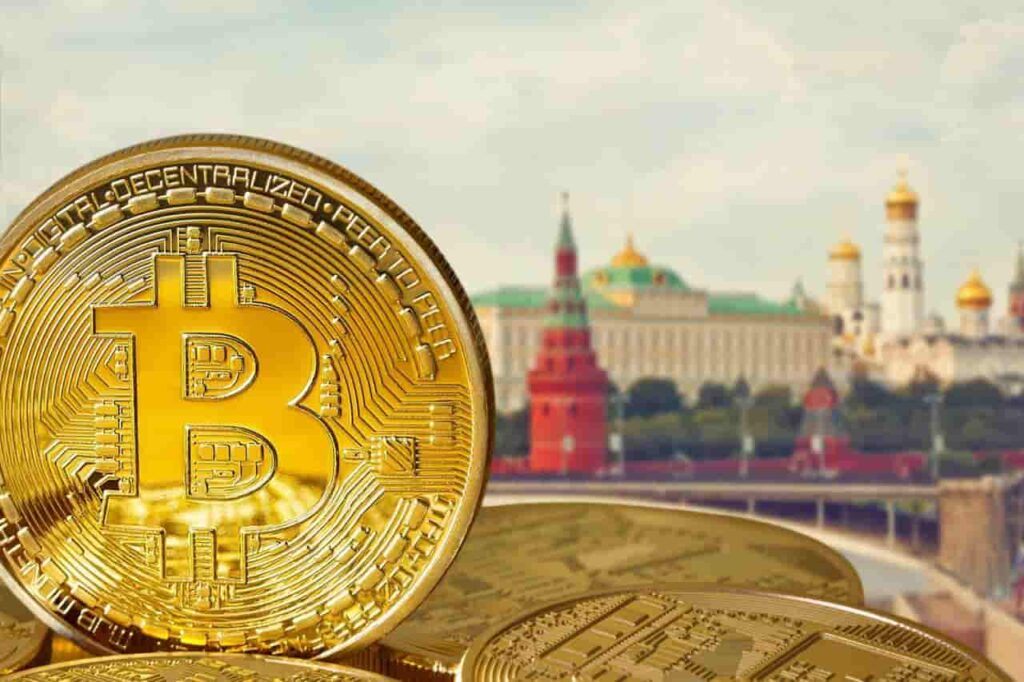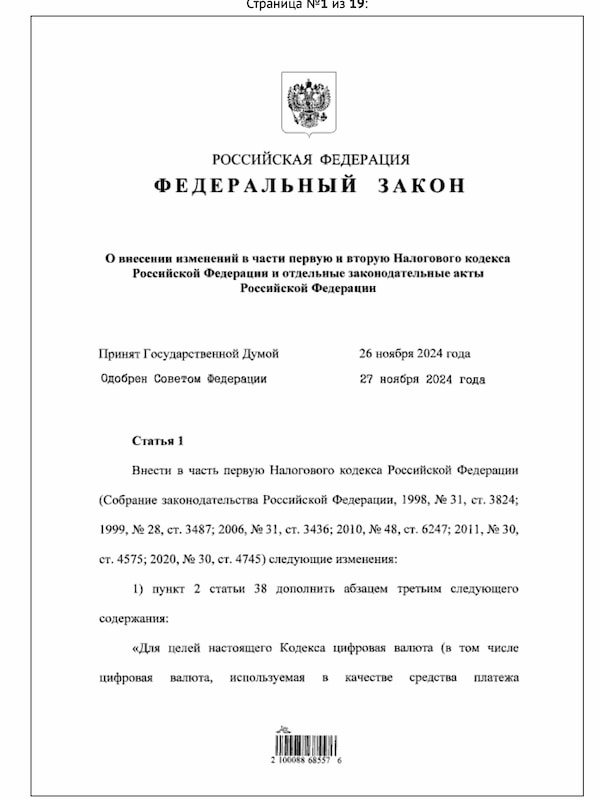Putin signs law recognizing Bitcoin and crypto as Property 
![]() Cryptocurrency Nov 29, 2024 Share
Cryptocurrency Nov 29, 2024 Share
Russian President Vladimir Putin has taken a bold step in embracing the digital economy by signing a law that officially recognizes digital assets such as Bitcoin as a form of property for foreign trade settlements.
The move signals a strategic shift in Russia’s approach to cryptocurrency, offering both opportunities and challenges for miners, traders, and businesses navigating the country’s evolving regulatory landscape, reported by Russian media outlet TASS on Friday, November 29 following the federal law announcement.
 On Amendments to Parts One and Two of the Tax Code of the Russian Federation and Certain Legislative Acts of the Russian Federation. Source: publication.pravo.gov.ru
On Amendments to Parts One and Two of the Tax Code of the Russian Federation and Certain Legislative Acts of the Russian Federation. Source: publication.pravo.gov.ru
One of the law’s headline features is a clear framework for taxing cryptocurrency profits. Individuals earning from buying, selling, or trading digital currencies will face a two-tier tax system: a 13% rate for income up to 2.4 million rubles and 15% for anything above that threshold.
Picks for you
Andrew Tate’s crypto crashes over 70% this year 6 mins ago Bitcoin needs to reclaim this level so BTC can rally above $100k 11 mins ago XRP is up 160% this year; Will it reach an all-time high in 2025? 49 mins ago Ripple to unlock 1 billion XRP on December 1 – Should investors be worried? 2 hours ago
For crypto miners, income is classified as “income in kind” and taxed at market rates, with allowances for deducting mining expenses. Meanwhile, corporate entities will see their mining profits taxed at the standard corporate rate of 25% starting in 2025, leaving no room for ambiguity.
From Russia with love?
But not everything is rosy for Russia’s burgeoning crypto sector.
The law introduces strict reporting requirements for mining infrastructure operators, demanding they report client information to tax authorities or risk fines of 40,000 rubles ($371).
Additionally, miners and traders will be excluded from several preferential tax regimes, such as simplified taxation systems, agricultural benefits, and self-employed status. The use of the patent system and automated simplified taxation is also off-limits, ensuring that the government maintains tight control over crypto operations.
This legislative overhaul, which takes effect upon official publication, isn’t Russia’s first attempt at regulating the crypto space. Back in August, Putin signed a law establishing rules for large-scale crypto mining, restricting such activities to registered entities. However, this latest measure goes further, carving out a structured and enforceable path for digital asset integration into the mainstream economy.
Russia’s latest crypto stance
The timing of these developments is no coincidence.
As global sanctions and economic pressures mount, Russia appears to be positioning cryptocurrencies as a tool to circumvent traditional financial systems and bolster its foreign trade. By exempting crypto mining and sales from VAT while introducing a robust tax regime, the Kremlin is signaling its intent to regulate without stifling innovation—a delicate balancing act that has eluded many nations.
While the law tightens its grip on crypto activities, it also opens the door for digital currencies to play a larger role in Russia’s economic strategy. The question now is whether these measures will help Russia capitalize on the potential of digital assets or create hurdles for innovation.
Featured image via Shutterstock